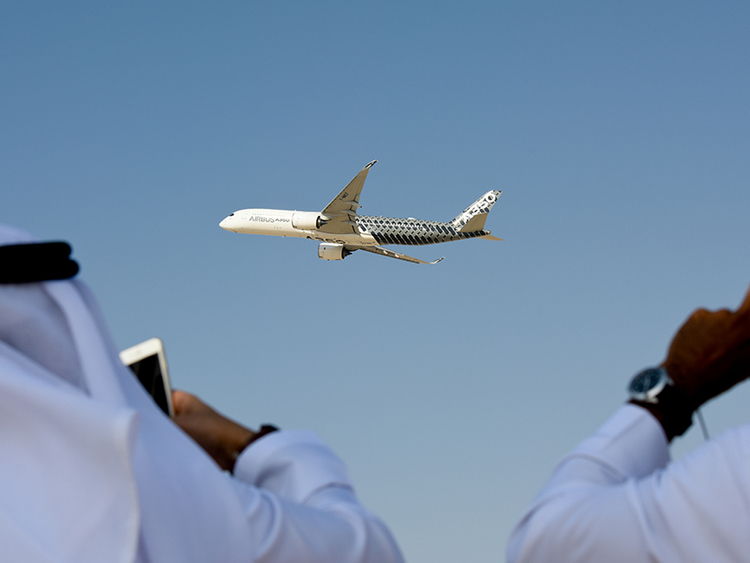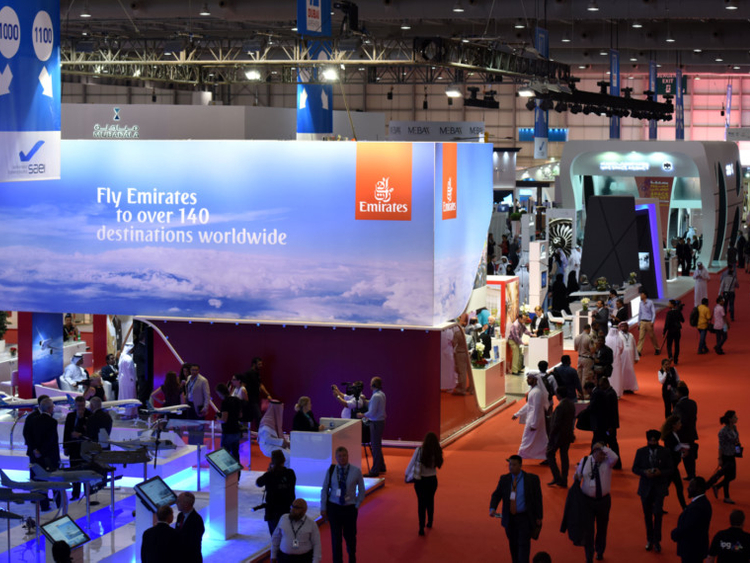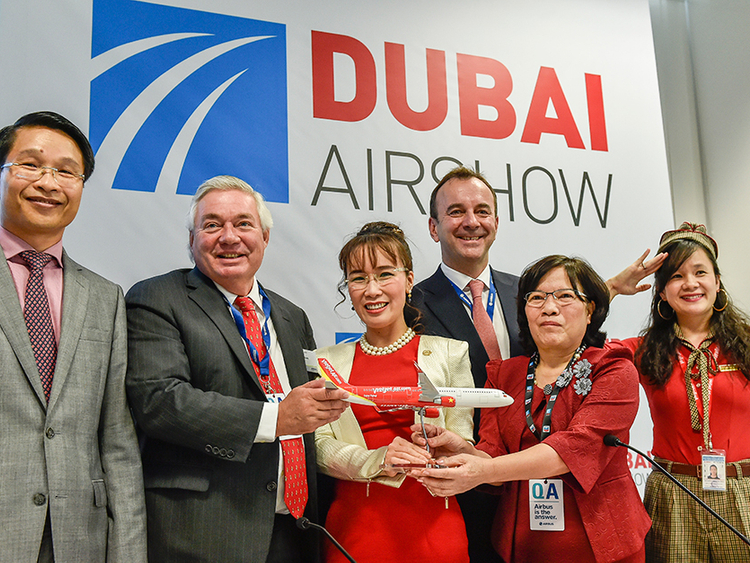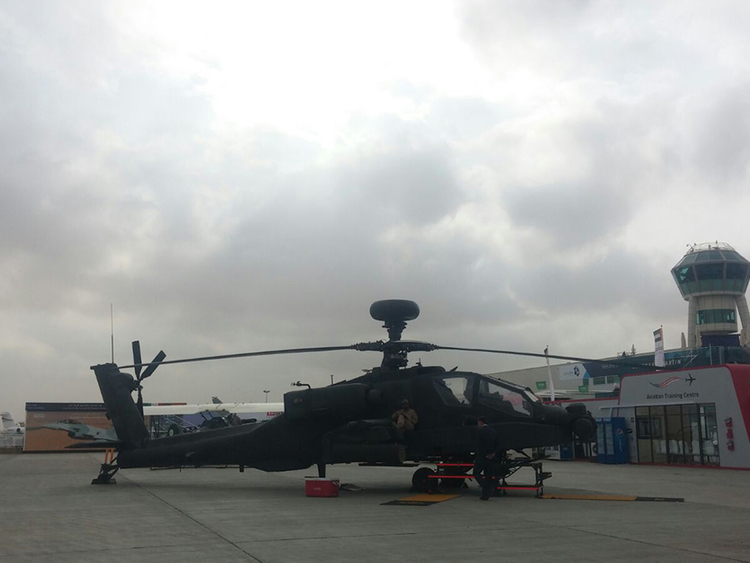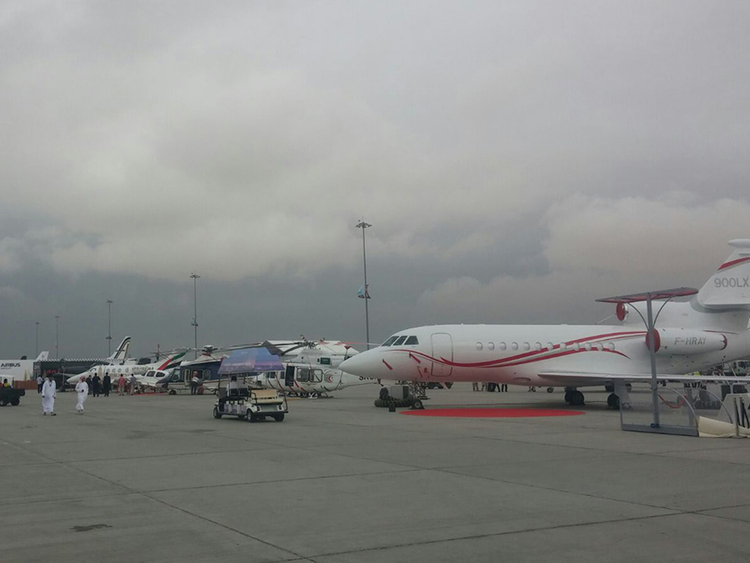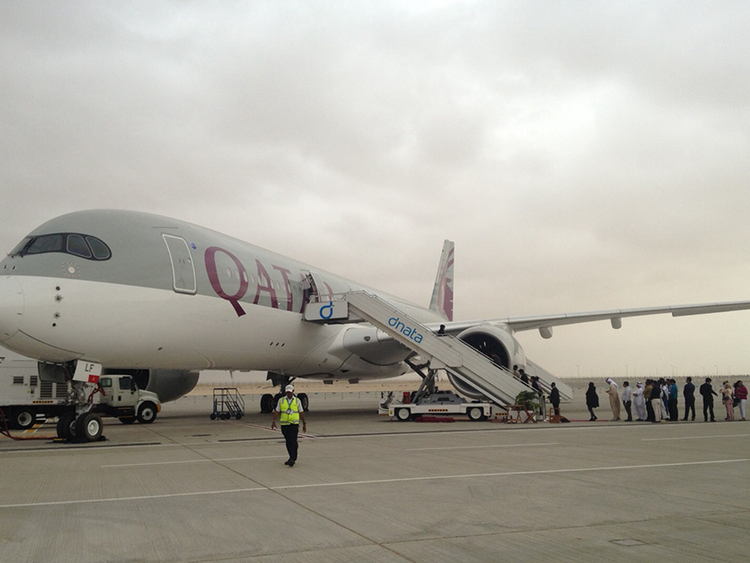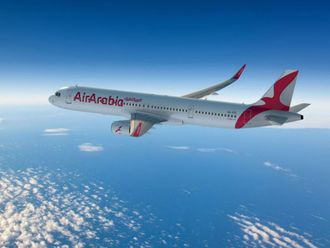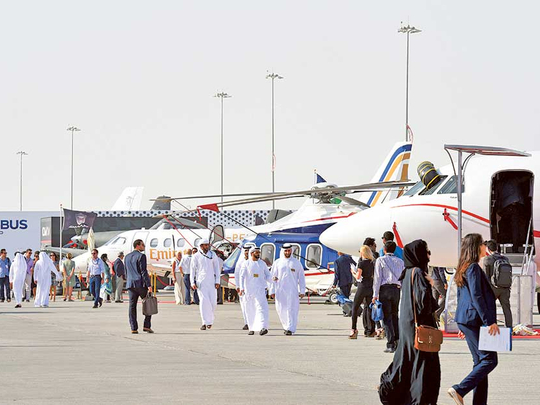
Dubai: The Dubai Airshow this week has been a huge success, Airbus Group and Boeing Co. both said on Thursday, despite the lack of record breaking orders that dominated the 2013 show.
This week, $39.8 billion of deals were signed with a roughly 50:50 split between commercial and defence contracts, Major General Abdullah Al Sayed Al Hashemi, Chief of the Military Committee, told reporters at the show on Thursday.
In 2013, over $200 billion of deals were signed, mostly Airbus and Boeing aircraft sold to Emirates, Etihad Airways and Qatar Airways.
The one thing that the two shows had in common was the weather. On Wednesday, high winds forced the cancellation of the flying show. Thursday saw rain, but there was no changes to the schedule.
In 2013, rain caused the air show to end a day early.
But Airbus and Boeing say the show was a success and cannot be measured in the number of aircraft orders announced. Both said that this region is too important to not be here for the Dubai Airshow even if there is nothing selling.
“It’s not really about if we’ll show up if there’s something to announce or not. We’re going to be at this show no matter what because we’re committed to these markets,” Bernie Dunne, Boeing’s Middle East, North Africa and Turkey President, told Gulf News.
Similarly, Airbus’ Middle East and Africa President Habib Fekih said the European plane maker was happy with the show and that just because there were no order announcements “doesn’t mean the show was not good.”
The only two major commercial orders at the show were split between Boeing and Airbus. India’s Jet Airways announced it was confirming an order for 75 Boeing 737 MAXs valued at $8 billion and Vietnam’s Vietjet announced a new order of 30 Airbus A321s valued at $3.6 billion. Both list prices.
Airbus had three of its A380s on display at the show, one each with Emirates, Etihad Airways and Qatar Airways. For the first time Emirates showed off their new two-class (business and economy) A380 that will start flights to Copenhagen next month, and Etihad’s had their three-suite private jet-like Residence on board their A380.
Fekih said Emirates’ two-class A380 is proving the European plane maker was right to build the world’s largest passenger jet, which has become the flagship of the Emirates fleet. He said the aircraft is a “congestion buster” and that more airlines will soon be flying it to congested airports like London Heathrow.
Airbus has gone nearly two years without finding a new customer for the A380 but Fekih says, “there is an awakening and now renewed interest.”
For Boeing, they say the show was about building relationships and pinpointing where it will need to do more in the future, including building more regional relationships with universities, communities and starting research and development programmes.
“This was a good show for us and we had a chance to demonstrate our commitment to this region, these markets and these customers,” Dunne said.


